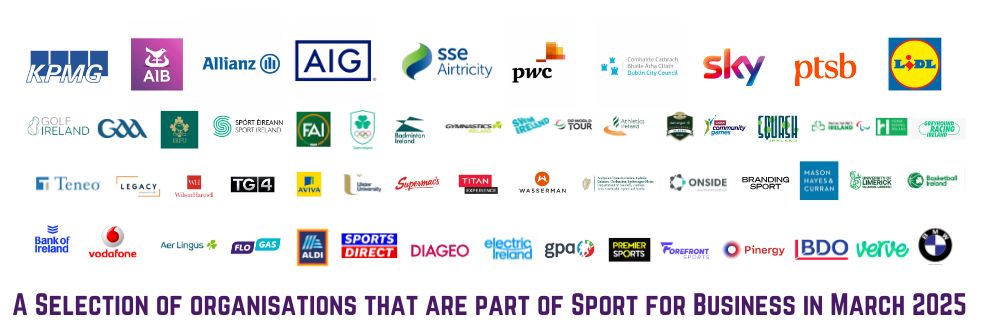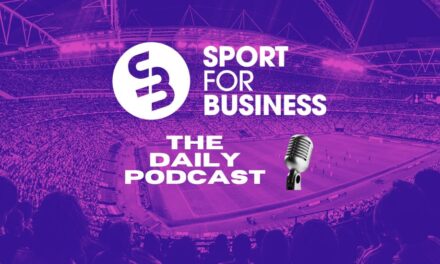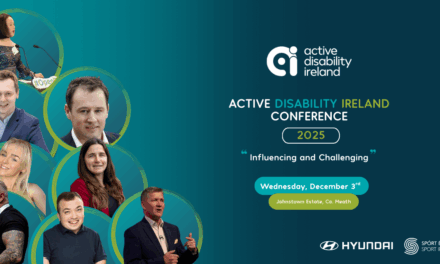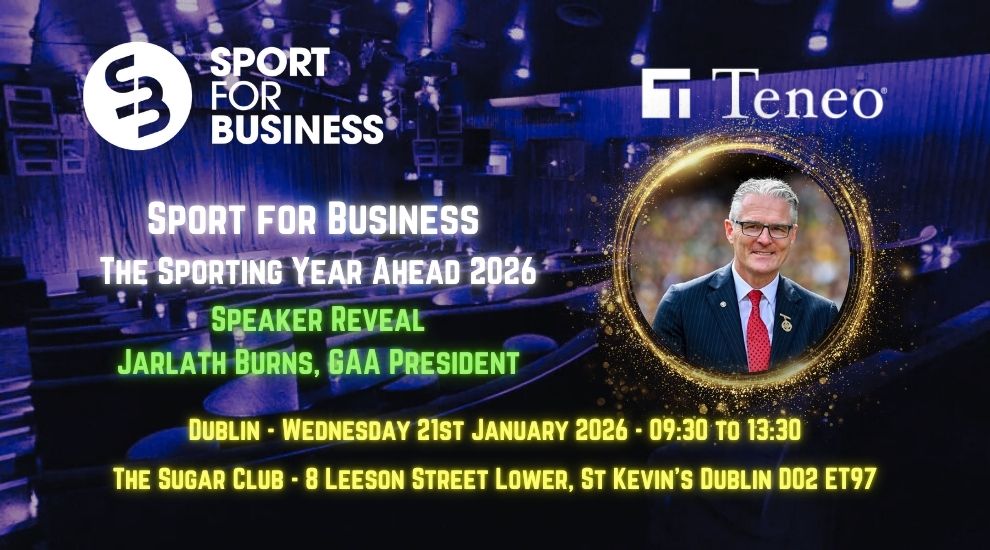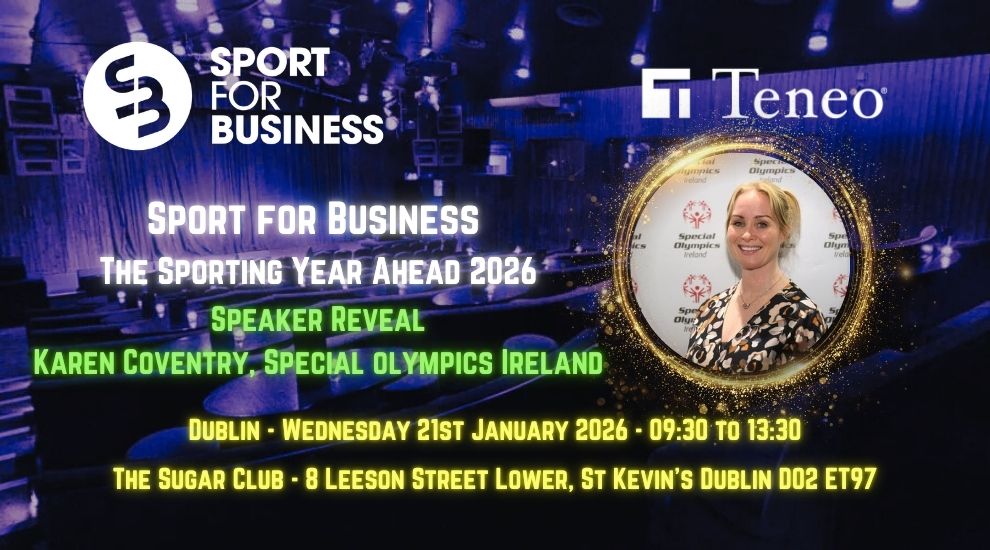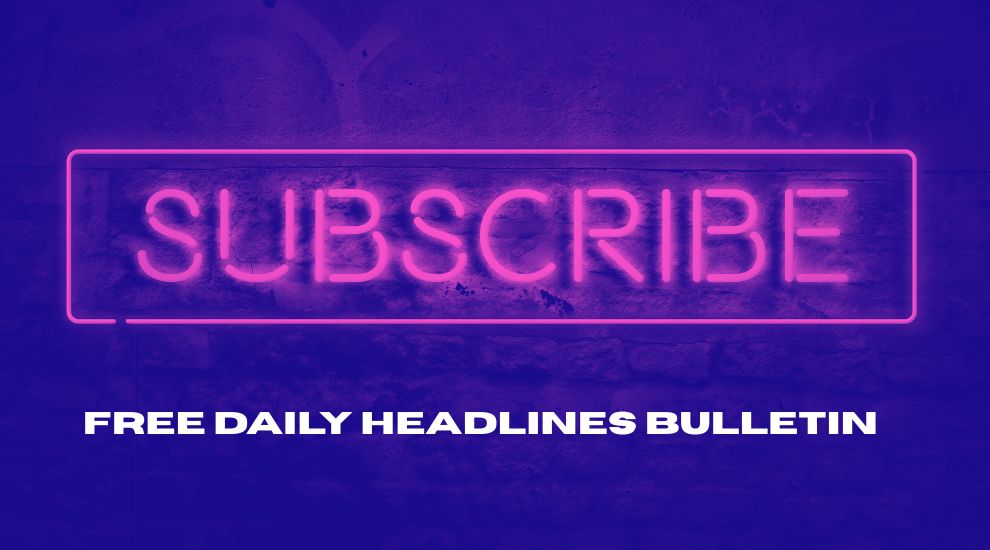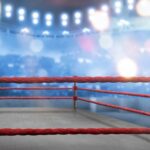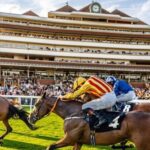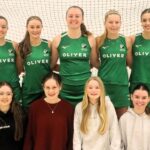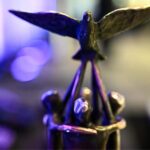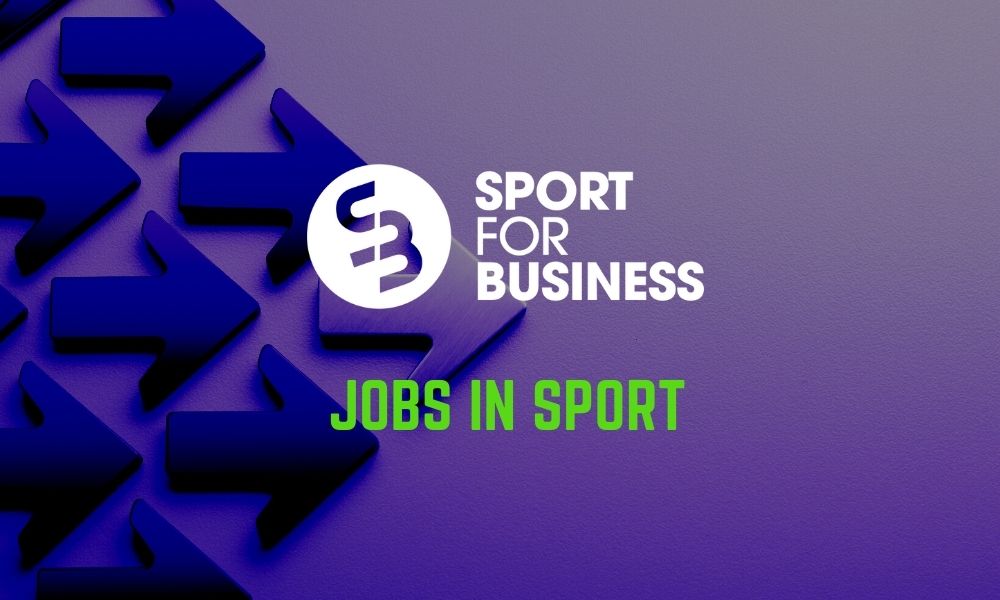When I dropped in to the Sport Ireland Development Conference during the week I expected energy, imagination and lots of conversations. They were all great in their own way but the one that blew me away was sitting down at the end of the hall where opportunities for including everyone were being demonstrated and clearly enjoyed.
When you meet Dr Eric Lacey, it’s immediately clear that you’re speaking with someone who has travelled a non-linear path.
A neuropsychologist working at the heart of Sport Ireland’s inclusion agenda, he brings lived experience, professional insight, and deep empathy to our conversation around accessibility in sport.
Grab a moment, switch off notifications and take a little time to learn from what is a wide-ranging, personal, and occasionally emotional conversation about diagnosis, sport, stigma, and hope.
Rob Hartnett (RH): Eric, thanks for sitting down with us. You’ve had a fascinating personal journey, and I want to start by talking about something you only shared publicly quite recently – your own diagnosis with ADHD.
Dr Eric Lacey (EL): Yeah, I was only diagnosed in my thirties – combined type ADHD, so both inattentive and hyperactive. It was profound, really. I’d always had a sense, especially as I started working in psychology, teaching neuroscience. But it wasn’t until relatively late that someone finally named it for me.
RH: That moment of realisation – what did it feel like?
EL: Like someone had handed me a missing puzzle piece. But also frustration – why didn’t anyone tell me earlier? I had a former supervisor who, when I told him, said, “Oh, I could’ve told you that years ago.” And I thought – well, why didn’t you? You knew I was struggling. The cost of not knowing… mentally, emotionally, even professionally… it’s enormous.
RH: That must have been hard to reconcile – knowing how much sooner that clarity could have come.
EL: Hugely. I nearly didn’t finish my PhD. The toll it took – internally – was massive. And the diagnosis didn’t give me a free pass, but it did give me an explanation. I wasn’t lazy, or flaky, or chaotic for no reason. My brain was just wired differently.
RH: You’ve talked about how sport, particularly as a young person, helped you manage those differences.
EL: Absolutely. I was a dancer for a long time – intensely focused, always in the moment. That hyperfocus that ADHD gives you, it found a home there. Same with boxing, same with football. Training was hard because I felt judged, like I was in school again. But the match, the competition, the ring? I thrived.
RH: That resonates with a lot of high-performing athletes too. There’s a higher prevalence of ADHD among elite sportspeople, right?
EL: Yes, around 8% compared to 5-6% in the general population. The structure, the physicality, the focus – sport can be the perfect channel for neurodivergent minds. But that’s only if the environment is designed to include them.
RH: And that brings us to your work now – leading on inclusion in sport. How has your personal experience shaped your approach?
EL: Massively. We talk a lot about universal design now – not just adding people in after the fact, but designing from the beginning with every body and every mind in mind. If I run a programme with 30 kids, all 30 should be able to engage in some way. Whether someone’s in a wheelchair, has ADHD, is deaf or non-verbal – the design has to start before they leave the house. Not just when they reach the pitch.
RH: You’re passionate about integrating experiences – having deaf children meet children with physical or intellectual disabilities, creating that empathy and mutual understanding.
EL: Yes. It’s not enough to say “we’re inclusive” and then run everything in silos. If a deaf child only ever plays with other deaf children, and a child with a physical disability only ever sees adapted sport from afar – what are we teaching them? Let them experience each other’s world, even for a few minutes. That’s how you build a genuinely inclusive society.
RH: And yet, you also make the case for options – including spaces that allow for difference and comfort.
EL: 100%. Integration doesn’t mean forcing everyone into one box. Some kids – or adults – need quieter spaces, alternative forms of engagement. When I’m overstimulated, I might put on headphones and listen to death metal. Not whale music – Slayer. That regulates me. Inclusion means listening to what works for people.
RH: You’ve also spoken about your daughter, and how you’re advising her not to rush, to find her own path.
EL: She’s neurodivergent too, and like I always say – there’s no one right path. I didn’t get my doctorate until my thirties. I worked in the arts for 15 years, in the National Theatre in London. I changed careers twice. Now I’m doing what I love, helping others find spaces that work for them. But that only came from years of struggle, of not fitting in. I want my daughter – and others – to know they don’t have to follow the same script as everyone else.
RH: Final thought – what gives you hope?
EL: The kids. Seeing a development officer cry yesterday because she felt someone had finally told her story. Meeting two teenagers from Kerry who won the PE Expo for their project on neurodivergence. Seeing clubs creating real, sustainable inclusion – not just ticking boxes. The future is more aware, more compassionate, more dynamic. We’re getting there. Slowly. But we’re getting there.
RH: Eric, thank you for your honesty – and for the work you’re doing. It matters.
EL: Thank you, Rob. These conversations matter too.
The Latest Sport for Business Podcast
Further Reading for Sport for Business members:
Check out more of our Sport for Business coverage of Inclusion
SPORT FOR BUSINESS PERSPECTIVE
You never know from a first contact just how deep a connection can be formed. I really was not expecting to be so moved and to take away such a respect for an individual who has battled his own challenges but is determined to help others through the medium of sport. Conversations like these are why we do the things we do, to make some small difference.
WHAT’S UP NEXT?
I’ve invited Dr Eric Lacey to be one of our guests at the Sport for Business Sport for Social Good Event which will be taking place in early October 2025, in partnership with our friends at Allianz.
Express Your Interest in a Sport for Business Event Here
MEMBERSHIP AND EVENTS
Sport Ireland, Special Olympics Ireland, Vision Sports, Paralympics Ireland and many more in this space are among the 300+ members of the Sport for Business community, which includes all of the leading sports and sponsors, as well as commercial and state agencies, individuals interested in our world, and an increasing number from beyond these shores taking a keen interest in Ireland.
Find out more about becoming a member today.
Get the full benefit of a Sport for Business membership by joining us at one of our upcoming events, where sporting and business leadership come together.
Or sign up for our twice-daily bulletins to get a flavour of the material we cover.
Sign up for our News Bulletins here.



